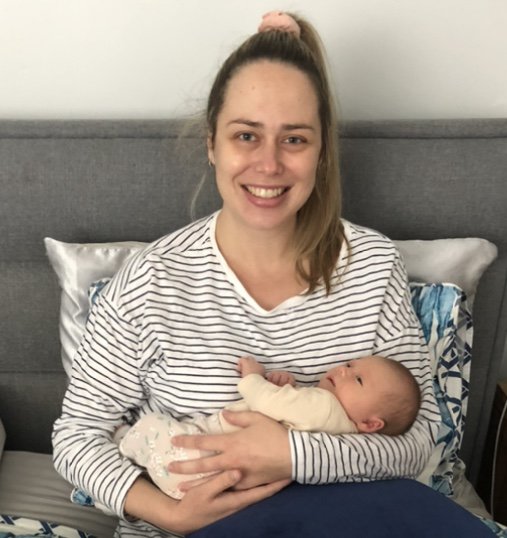Hyperemesis Gravidarum – more than “just morning sickness”

Illawarra Shoalhaven Local Health District (ISLHD) is using this year’s International Hyperemesis Gravidarum Awareness Day (Sunday, 15 May) to help raise community awareness about the lesser-known pregnancy disease.
Hyperemesis Gravidarum, or HG as it’s often known, involves unrelenting and excessive nausea and vomiting during pregnancy. Unlike regular ‘morning sickness’, which is considered a normal sign of pregnancy, HG often leaves women bed-bound with vomiting, dizziness, fatigue and food aversion.
ISLHD Hyperemesis Gravidarum Clinical Nurse Consultant (CNC), Taryn Elder is leading a project to provide increased support and education to local pregnant women as well as gaining a better understanding of the impact and prevalence of Hyperemesis Gravidarum.
“For women with HG, pregnancy can be a debilitating experience impacting their physical, mental, social and financial wellbeing. Severe cases can result in hospitalisation and if left untreated can be potentially life-threatening, yet many people still don’t know HG exists,’’ Ms Elder said.
“Women with HG report that aside from the physical impacts, one of the most difficult things about having the disease is trying to explain it to those around them.
“This is made even more challenging when talking about HG to young children. We heard from mothers with HG who were struggling to explain to their other children why they were so sick during their pregnancy.’’
The HG project is part of a $17 million investment by the NSW Government into education and research into the disease, as well as offering women and their families more support.
The Local Health District has developed a resource written specifically for children that explains in simple language what their mum is going through.
“We worked together with clinicians to develop the children’s book and also had input from a mum who’d experienced HG and was able to share with us some of the questions her young son had during her pregnancy,” Ms Elder said.
The printed version of the book is being distributed to local antenatal clinics, maternity departments, GP clinics and other community health organisations. The book can also be viewed or downloaded from the Local Health District’s website – on the Nausea and Vomiting in Pregnancy and Hyperemesis Gravidarum page under Resources.
In the lead-up to this year’s Hyperemesis Gravidarum Awareness Day, the Local Health District has been asking women who have experienced HG to share their stories and help spread the word about the disease.
“We want to give women with HG a voice, to acknowledge their difficult journey and the impact of the disease, but also to educate other pregnant women about HG and how to seek help and support,” Ms Elder said.
Corrimal woman, Tara gave birth to her daughter Florence in March after experiencing severe HG throughout her pregnancy.
“When I was about six weeks pregnant I started to feel nauseous and went from being sick a few times a day to vomiting at least eight times a day,” Tara said.
The days and weeks that followed blended into one long, exhausting and mentally draining experience for Tara and her husband, Zachary.
“I became afraid to eat and I lost all motivation to do the things I normally loved. I was admitted to hospital to be given fluids and monitoring after becoming dehydrated and losing weight,” Tara said.
“I think it's important for people to understand that HG isn’t just morning sickness.
“I would like people to know that when you are in the thick of it - experiencing HG is a vicious, never-ending cycle.
“If someone tells you they have HG, do whatever you can to help them through it, because it isn’t just something that affects you physically, but mentally as well.”
Hyperemesis Gravidarum affects hundreds of women across NSW each year. The District will implement a number of strategies over the next few years aimed at providing women and their families with more consistent and practical support to help them through HG.
“We’re developing education tools to better inform women and health professionals about HG, support research and ensure hospital, community and primary care providers are better integrated,” Ms Elder said.
For more information, or to request a hard copy of the Children’s Book resource, visit the ISLHD website.
